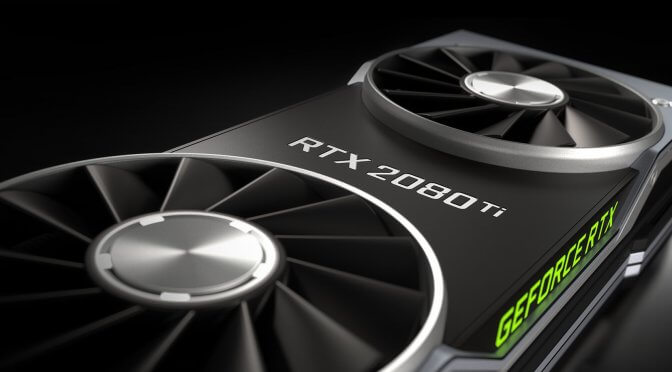NVIDIA has announced that its new GeForce RTX graphics cards support several new, innovative advanced shading techniques, that will enable developers to further improve performance. One of them is called Adaptive Shading and it will debut in Wolfenstein 2: The New Colossus via a new patch.
According to the green team, Adaptive Shading, formerly known as Content Adaptive Shading, adjusts the rate at which portions of the screen are shaded, meaning the GPU has less work to do, boosting performance.
The GeForce RTX GPUs (RTX2070, RTX2080 and RTX2080Ti) can measure spatial and temporal color coherence per frame, and in areas where detail remains unchanged from frame to frame (like for example sky boxes or walls) the shading rate can be lowered in successive frames. As such, this can improve overall performance in games that support this feature.
Of course developers will have to manually implement this feature in their games so that the RTX GPUs can take advantage of it. Moreover, NVIDIA has not provided any percentage numbers of the performance boost that PC gamers can expect from this technique.
NVIDIA stated that the first game that will support Adaptive Shading will be Wolfenstein II: The New Colossus and the patch that will add support for it will release later this month!
UPDATE:
MachineGames has just released the patch that adds support for Adaptive Shading in Wolfenstein II: The New Colossus. This patch will be auto-downloaded from Steam and you can find its complete changelog below.
- Added support for NVIDIA Adaptive Shading on NVIDIA RTX series GPUs. (Improves frame rate by dynamically adjusting the shading resolution in different areas of the screen, without affecting fidelity).
- Ensured that, on multiple GPU systems, the discrete GPU is preferred over an integrated GPU.
- Players can now choose to ignore/suppress warnings when the selected video settings exceed the amount of dedicated VRAM available on the GPU
- Fixes for skinning issues on GTX 970

John is the founder and Editor in Chief at DSOGaming. He is a PC gaming fan and highly supports the modding and indie communities. Before creating DSOGaming, John worked on numerous gaming websites. While he is a die-hard PC gamer, his gaming roots can be found on consoles. John loved – and still does – the 16-bit consoles, and considers SNES to be one of the best consoles. Still, the PC platform won him over consoles. That was mainly due to 3DFX and its iconic dedicated 3D accelerator graphics card, Voodoo 2. John has also written a higher degree thesis on the “The Evolution of PC graphics cards.”
Contact: Email

